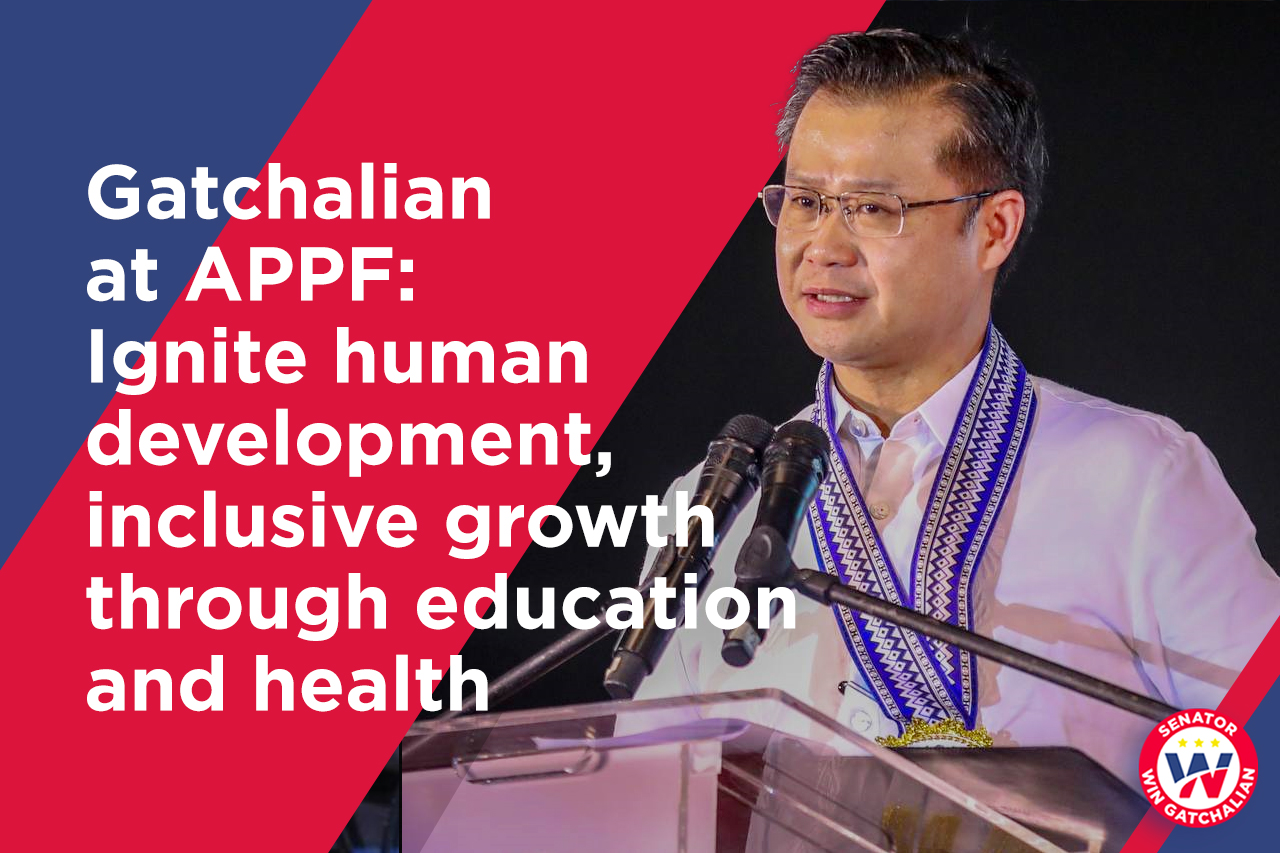As the 31st annual meeting of the Asia Pacific Parliamentary Forum (APPF) brings together participating parliaments to delve into addressing diverse regional concerns, Senator Win Gatchalian calls for the ignition of human development and the promotion of inclusive growth, emphasizing the pivotal role of education and health.

Gatchalian chairs the Working Group on Economic and Trade Matters at the APPF, under which human development and inclusive growth are among the subtopics. This comes as the region continues its efforts to eradicate extreme poverty.
There have been some indications of positive results, as highlighted by Gatchalian. Data from the World Bank reveals that in 2018, about 9% of the world’s population lived in extreme poverty or those living below US$ 2.15 per day. This is substantially down from 37% almost 30 years ago. The steepest decline in extreme poverty was recorded in the Asia Pacific region from 64% of the population 30 years ago to 1.5% in 2018. Even the Philippines’ gains in extreme poverty reduction were substantial. In 2018, 5% of the Philippine population lived in poverty, a notable improvement from 27% 30 years ago.
The lawmaker, however, emphasized that solely using the reduction in extreme poverty as a measure for inclusive growth fails to capture the totality of potential human development that should be enabled by growth. He cited the Human Development Index (HDI), a summary measure of average achievement that comprises three dimensions of human development: a long and healthy life, good education, and attainment of a decent material standard of living.
According to data from the United Nations Development Programme (UNDP), the human development index in the Philippines showed a modest improvement from 0.59 in 1990 to 0.69 in 2021, reflecting an increase of approximately 0.10 index points. On the health front, life expectancy at birth improved by 3.4 years, rising from 65.9 years in 1990 to 69.3 years in 2021. Regarding education, the expected years of schooling rose to 13.1 in 2021 from 10.8 in 1990, primarily attributed to the K-12 education reform introduced in 2013.
“The APPF provides us with the opportunity to learn from member-states, finding effective approaches and proposing policies and legislation that are expected to translate into improved outcomes in other dimensions of development such as education and health,” Gatchalian said.


